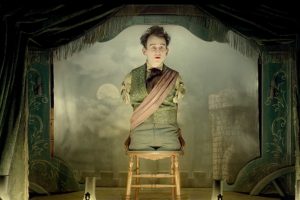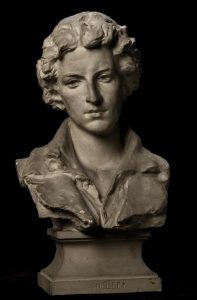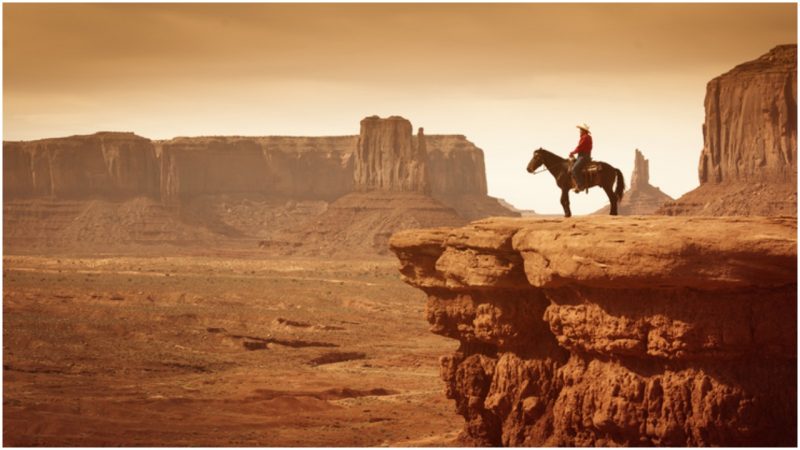
I’m two-thirds through the Coen Brothers’ latest take on the Wild West, their Netflix production The Ballad of Buster Scruggs (see the trailer here.) And thus far, the image that sticks with me is its living bust of Anglo-American poetry and oratory: the limbless character Harrison (stage-named the Wingless Thrush). In the “Meal Ticket” chapter, he sounds William Shakespeare, Percy Bysshe Shelley, and Abraham Lincoln from a kitschy stage compartment in his employer’s wagon.

If we shadows have offended,
Think but this, and all is mended:
“My name is Ozymandias, king of kings:
Look on my works, ye Mighty, and despair!”
Four score and seven years ago…
This culture mashup clashes with the show’s remote locations and hard-knock listeners. The thespian’s soaring voice and heightened lines seem out of place in such wide open spaces–cinematic spaces where we expect stage coaches and gunfire. His lofty stage name recalls Romantic bird poems from another time. Like Shelley’s ruined statue in the desert, the Wingless Thrush is a pedestaled voice that sounds out to passersby. Like both cultural signifiers, the Western prototype for Poet (Orpheus) was dismembered. Watching these scenes in The Ballad of Buster Scruggs, we remember (re-member) these lines or we don’t. If we do, we might anticipate the tale’s turn.
There are other culture clashes at work in this chapter. If you saw the Harry Potter movies, there’s the incongruity of an older Harry Melling (then Dudley Dursley) playing a character higher up the culture chain. Still, the Winged Thrush’s elocutionary culture is literally propped up in a wagon train of one.
Wild West shows aren’t the only emblems of the thespian West. The TV show Have Gun – Will Travel aired an episode titled “The Ballad of Oscar Wilde” (1958), in which the gentlemanly hired gun Paladin takes to reciting Wilde’s witticisms. The Coen brothers’ singing cowboys can be eloquent in their everyday speech. (O, the webs that Buster Scruggs himself can weave with his diction!) But they don’t practice elocution, and Buster carries more than one gun. The prospector addresses “Mr. Pocket” in apostrophe, even looking skyward. But we can’t say he waxes poetically as he seeks to stake his claim in the West.
What does all this mean? Is all culture bust, or just some kinds of culture? How is culture a kind of disability in this highly stylized Wild West at odds with high style? And how do the various characters stake their claims to culture? In short, West or Bust? I’ll have to stay tuned to find out. –MB
SOURCES:
Joel and Ethan Cohen, The Ballad of Buster Scruggs (Netflix, 2018)
William Shakespeare, Puck’s Epilogue from A Midsummer Night’s Dream (1600)
Percy Bysshe Shelley, “Oxymandias” (1818)
Abraham Lincoln, “The Gettysburg Address” (1863)
William Ordway Partridge, Bust of Percy Bysshe Shelley, 1899. Smithsonian Museum
Monument Valley shot from The Vintage News
